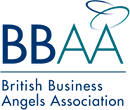The Angel Funding Process
The following constitutes a basic guide to the process of raising Angel Investment. Please note this will vary from network to network, while the process of raising investment via VCs is quite different as you will not normally go through training sessions/pitch at an event with other businesses:
-
Establish whether your business is suitable for this type of investment
Angel investment is only suitable for certain businesses. A suitable business would normally exhibit a number of characteristics including some of the following: fast growth potential; innovative product/service with significant competitive advantage; large addressable market; clear growth strategy; strong management team; strong intellectual property; a clear and achievable 'exit' strategy.
-
Create a business plan and shorter executive summary.
You will normally use your executive summary (typically 1-5 pages) as your initial point of contact with investment organisations. This would normally contain key information about your business, including information about your product/service, intellectual property, management team, development strategy, competitors, financial projections, funding requirements and exit strategy (this is not an exhaustive list).
-
Use the BBAA Member Directory to source the right angel networks/VCs* to contact
This will normally be based on the location, sector and stage of your business, as well as the track record of the network and charges involved - have a look at each organisation's 'Vital Statistics' on their listing for a snapshot about their criteria and charges. N.B. only BBAA's member angel networks and VCs are able to conform to our strict best practice code of conduct and disciplinary procedure. If you come across a UK based network not affiliated with BBAA, if may be that they are unable to conform to this code.
-
Initial contact with your chosen angel networks/VCs*
Normally the first point of contact is through making an application via the organisation's website/via email. Normally you will be asked to submit your exec summary/business plan along with an overview of your business. The respective organisation will review and assess your business.
*The funding process with VCs is different as you will not normally go through training sessions/pitch at an event with other businesses.
-
Face to Face Meeting
If your business is deemed of potential interest as an investment opportunity, you would normally be invited to the organisation's office for further meetings/interviews.
-
Invitation to Pitch
If you are accepted you will be invited to pitch your business to their investors, normally at an investment event where other businesses will also be presenting, in return for a fee (This fee can be anything between £200 - £15,000, although some government backed networks do not charge a fee). If you accept the fee you will then get the chance to present your business to their investors face to face. Prior to pitching your business, your will normally undergo some level of training and preparation where the organisation should brief you about what to expect from the event and how to maximise your experience. Essentially the objective is to garner a significant level of interest from that network's investor community and to encourage them to attend a follow up meeting.
-
Syndicate Meetings
Following your pitch, assuming you were able to raise a sufficient level of investor interest, you will then hold a number of syndicate meetings with interested investors, as well as contact by email and phone with a view to developing a syndicate, drafting your investor term sheet and closing the deal (normally a number of meetings will be held as they carry out due diligence on your business – this can take a number of weeks if not months). Some of the issues investors will consider include your valuation, financials, management team, market potential, competitors, etc.
-
Success!
If your business has the right combination, after a number of weeks/months, you may be successful in raising your funds. You will normally need to pay the network a success fee (typically 5% of the funds invested by their angels).
Congratulations if you manage to close your funding round, this can be a very challenging and time consuming process. However, the investment is just the start. Now you will need to prove to your investors that you were the right horse to back by actually delivering on your promises and projections. The mutual goal is normally to achieve an 'exit' after a number of years, often via trade sale to a larger organisation, or via Initial Public Offering (IPO) to a stock market, hopefully generating a significant return to both the entrepreneur and investors.






